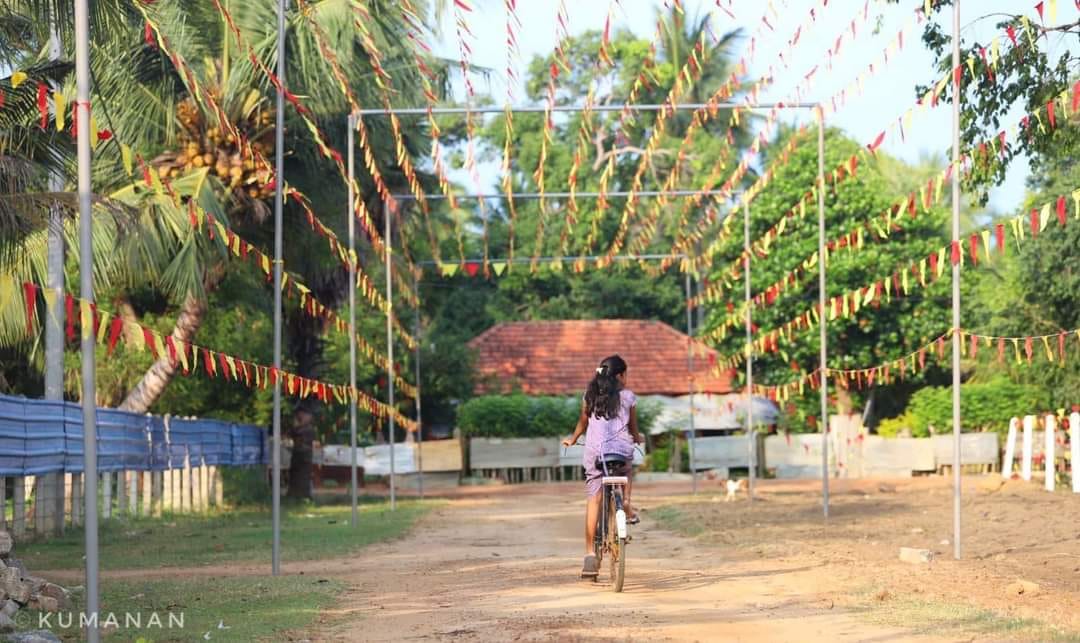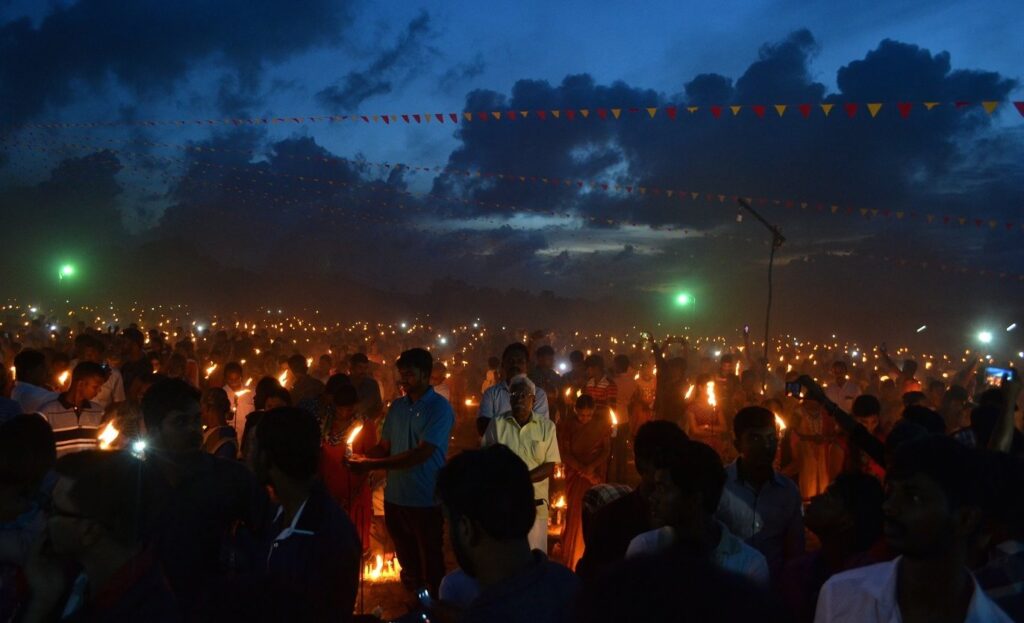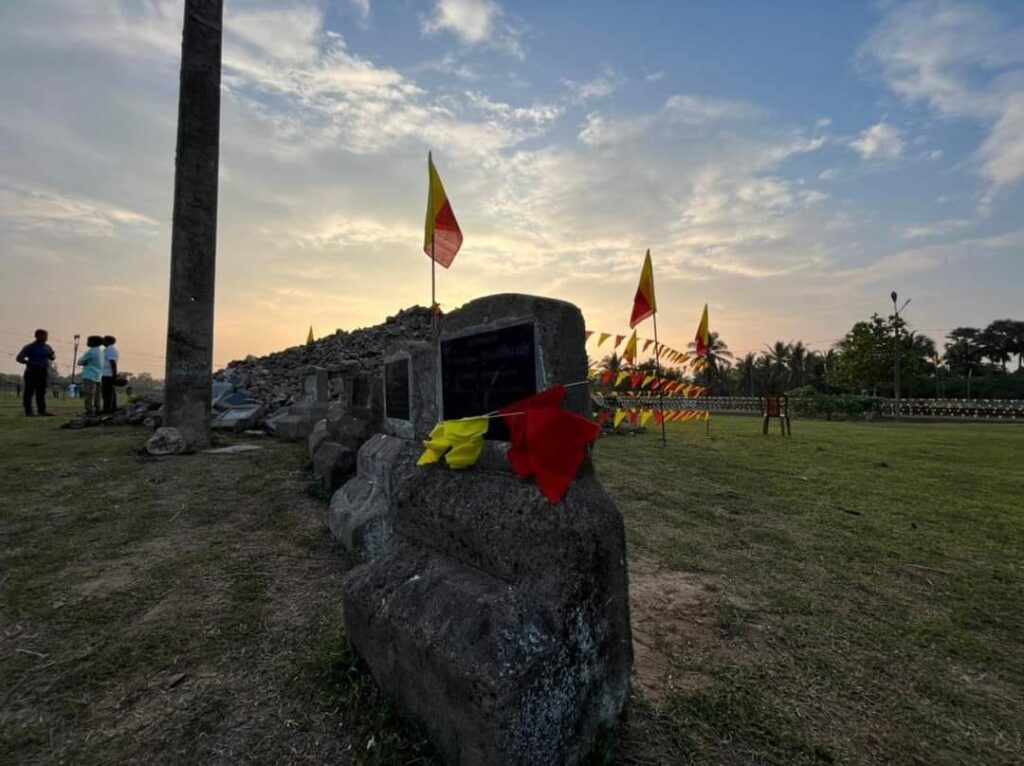by Nillanthan Maha, November 27, 2022
[translation by Google Translate, with some corrections by the editor]

This is the 14th Heroes’ Day since 2009. For the last 13 years, Heroes’ Day has been celebrated in one way or another, secretly and openly.
Remembrance for the Tamil people has deeper dimensions than just crying and grieving. The politics of the Tamil people after 2009 is the politics of demanding justice for the loss. It is a politics that seeks justice for the Tamil people who have been killed so far in the Eelam war. Memorial days have the following importance in the struggle for justice.
The first importance is that they are occasions for grieving in a psychological or medical sense, especially during periods that cannot be overtly remembered, and those days are occasions for pouring out pent-up grief. As such it is a psychologically comforting event. Suppressed grief can affect physical and mental health at some point. Unexpressed grief can manifest as rage in other ways. So letting out grief is a healing process in a psychological sense. A counseling.

The second importance is that the Tamil people live in an age when the power of a people must be transformed into a collective power. Commemorations unite the Tamil people. They unite the Tamil people in the homeland and in the diaspora as a nation.
Nationalism in its practical sense is pluralistic. Remembrance days unite the Tamil people across borders, regions, religions and other disparities. They are emotional events that bring the Tamil people together.
When the Tamil people turn their collective grief into collective power, it becomes the impetus for the struggle for justice. Therefore, on that basis, remembrance is an inseparable part of the struggle for justice.
Of third importance, for the homeland, there is a resistance to commemoration. The government prohibits the commemoration of a banned movement by law, intimidates mourners and demolishes monuments. Thus, commemoration events are seen as the arenas where the Tamil people establish their right to remember – their collective right; their cultural right – against the oppressive politics that prevents commemoration, that demolishes monuments.
The history of the ethnic problem of Sri Lanka is in a way the history of demolishing monuments and the history of rebuilding the demolished monuments. For the last 13 years, many heros’ resting places have been military bases of the Sri Lankan government forces. For example, the large cemetery for the fallen in Kopay, Jaffna now serves as the military headquarters for the area.
Not only the Houses of Heroes, but also the statue of Sivakumar, the memorial of the massacre of the 1974 Tamil Research Conference, the memorial of Thilipan, etc., have been demolished over time, but the Tamil people continue to rebuild them.
As a friend of mine says, Tamil people should find a way to remember that cannot be demolished, burnt or blocked. For example, even if the Mullivaikal monument is destroyed and people are prevented from gathering there, Tamil people can still prepare and drink Mullivaikal porridge in their homes despite the restrictions. The Tamil people’s porridge or kanji. No one can stop porridge being brewed in all kitchens and this act is more universal than gathering in a plot of land in Mullivaikal and crying in front of a memorial. As Tamil civil society says, we use food to commemorate a time when the simplest food was used to survive the horrors of war.

Therefore, against a politics that destroys memories, the Tamil people continue to promote a politics that preserves memories.
Especially in the years following 2009, the diaspora Tamil community led the remembrance in a big way. There was and is some disunity on this matter, but always a mentality that does not accept failure. Not only among the diaspora Tamils, but also in the homeland there is a political rivalry to claim memorial days and adopt memorials. This rivalry should be examined separately. What is important to point out here is that the Tamil people are reclaiming memory as a tool of struggle against a politics that fears memory and a collective memory. This is the deepest dimension of recollection. On that basis, all memorial days that the government does not allow are battlegrounds for the Tamil people.
A fourth importance is the transmission of memories to the next generation. Through this, not only is the continuity of memory maintained, not only is the continuity of a struggle maintained, but the historical continuity of a people itself is also maintained. In other words, when the memories are passed on from generation to generation, the nation also becomes more stable from generation to generation.
As Canadian-based poet Cheran says, the first generation lost their land. But language holds memories. One of the driving forces of the struggle towards the motherland found in that generation is deprivation, but the second generation has no memories of the land. Language has become two, culture has become two. So what will be the status of the third generation? Can a nation so ravaged by migration maintain at least some continuity in memory?
The fifth importance is that commemoration is not only to continue the politics of the martyrs who we remember, but in a deeper sense it is to compensate the loss caused to the family of that martyr and to those who stay loyal to that martyr. It cannot be said that all the families of martyrs in the country are living happily. There are families that are broken due to the martyrdom of a child, the family heir. All of them need help. Tamil people light lamps in public to remember their sacrifices, and see if the stoves are burning in the homes of those martyrs. We have to find out what happened to the young wife and children of the martyr whose sacrifice Tamil people are proud of over the last 13 years. Many women never get married. In many places, new marriages have also come to a screeching halt. No one has exact statistics regarding this. In the family there are parents who have been abandoned because of the death of a person like Achani; there are brothers; there are wives left alone; there are orphans. So to honor the martyrs is to fill the void left in their families by the loss of the martyrs. Many martyrs left their homes to fight for their country and their houses are still like that. The next generation will dare to do politics only by seeing the respect that the society gives for the former leaders and the families of the martyrs. Remembrance days create an environment for Tamil people to think about many such issues.
So summing up, the above reasons reveal the multi-dimensionality of remembrance. It is a counseling. It is a historical continuity. It is a resistance. It is a struggle. It is a field that transforms the collective grief of a crowd into political power. As Milan Kundera in his 1979 Book of Laughter and Forgetting said, “The struggle of man against power is the struggle of memory against forgetting.“